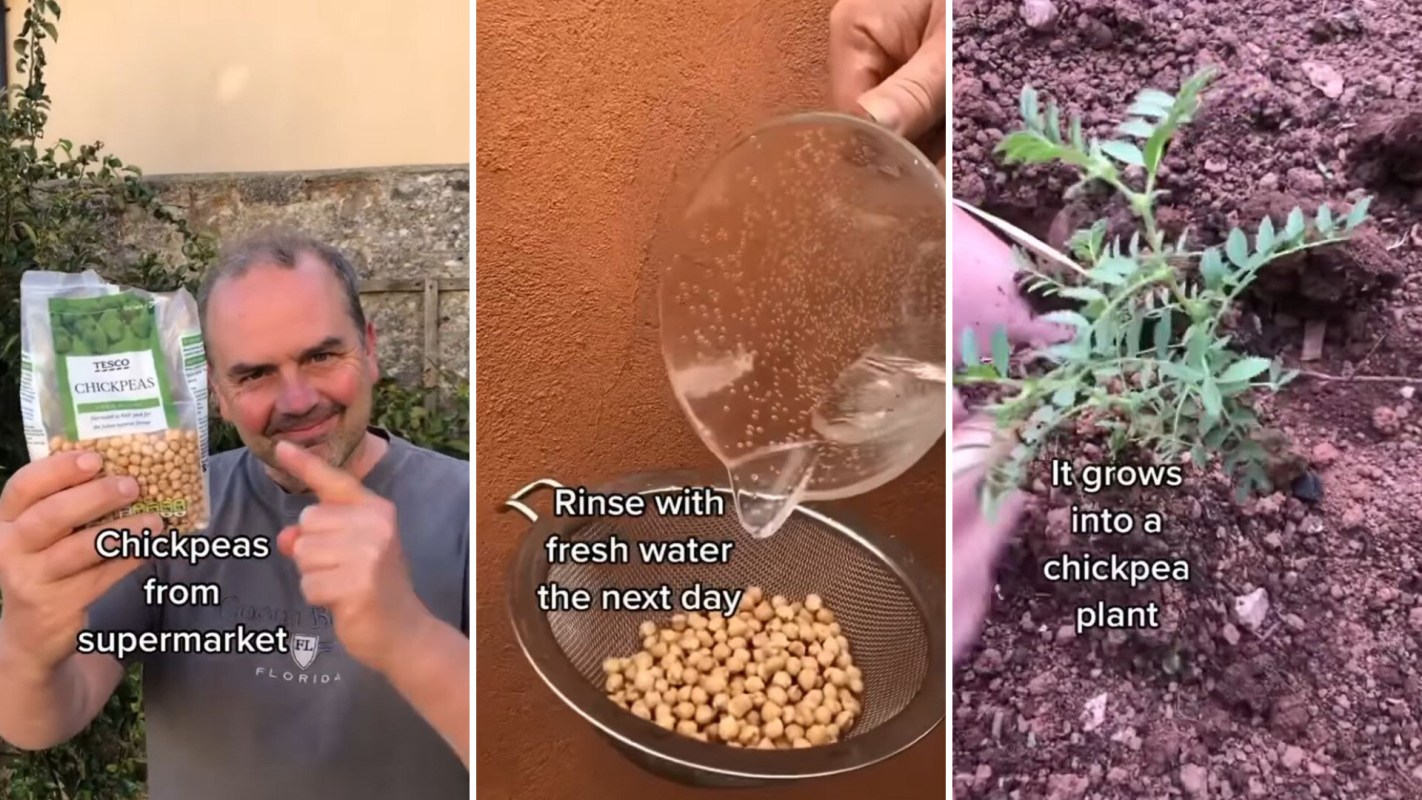A popular Instagram reel shows hummus lovers how to have an endless, lifelong supply of chickpeas without returning to the supermarket.
The reel was reposted by the user @gardening_ideas on the popular Instagram community Waste Free Planet (@wastefreeplanet), which has 521,000 followers.
"Your seeds will go on and on," the Instagrammer says in their reel.
The clip begins with @gardening_ideas showing off a bag of chickpeas from the supermarket. He places the chickpeas in a plastic Tupperware container filled with water and instructs viewers to let them soak overnight.
He then rinses the chickpeas using a strainer and places them back in a plastic container with water, where they are left for a few days until they grow tails.
After the tails have grown, @gardening_ideas places the chickpeas into a container with compost and plants them in a garden. They then grow into a full chickpea plant with brand-new chickpea pods.
The Instagrammer then shows viewers how to shell the pods to make homemade hummus and instructs them to "save a few seeds to sow for next year."
How it's helping
Doing this saves money for chickpea and hummus lovers and prevents more plastic and metal waste from going into the ecosystem, along with additional planet-warming gases from entering the atmosphere. The large-scale production of chickpeas, plus the transportation needed to get them from the farm to the supermarket, requires energy.
Chickpeas from the supermarket are either canned or wrapped in plastic, the latter of which causes major environmental problems. In America alone, around 40 million tons of plastic are produced each year, but only about 5% is recycled.
Much of this plastic ends up in the oceans, and this is harmful to marine wildlife in many ways.
Growing your own chickpeas instead of buying them at the store can also be beneficial for your health, as studies have shown that canned and packaged foods can contain a range of chemical contaminants, including metals.
What everyone's saying
"This is absolutely amazing! Will be doing this too!" one commenter wrote.
Another said: "It works! I did them in a greenhouse."
Join our free newsletter for easy tips to save more, waste less, and help yourself while helping the planet.









